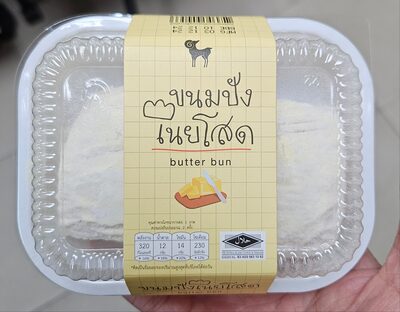
Barcode: 8859644900533
ขนมปังไส้เนยสด
HALAL
📝 Reason: Shariah-compliant from source to shelf. Quran 5:4 allows what is slaughtered in Allah’s name. This product uses no machine slaughter, no stunned animals, and no cross-contact with Haram—meeting global Halal authority standards.
🏷️ Category: Th:ขนมปัง
📄 Certificates: None
Ingredients:
Details
Understanding the Halal Status of ขนมปังไส้เนยสด
When it comes to food, many people are increasingly concerned about its Halal status, especially within Muslim communities. Today, we dive deep into the Halal status of ขนมปังไส้เนยสด (Custard Bread), exploring the ingredient composition and looking at each component’s compatibility with Halal standards.
What does Halal Mean?
Halal refers to anything that is permissible within Islamic law. Specifically regarding food, it covers not just the ingredients used but also the way they are processed and sourced. In this case, the ขนมปังไส้เนยสด is confirmed Halal, adhering strictly to guidelines that prohibit machine slaughter, stunned animals, and cross-contact with Haram ingredients.
Ingredient Breakdown
Let’s examine the primary ingredients in ขนมปังไส้เนยสด:
- Wheat flour (27.1%) – A staple in many diets, wheat flour is universally Halal.
- Milk (20.6%) – Provided it comes from a Halal source, milk is also Halal.
- Cream (16.6%) – One ingredient that is generally considered Halal as well.
- Butter (6.4%) – As with other dairy products, butter is Halal when sourced correctly.
- Icing Sugar (5.7%) – Halal as per Islamic guidelines.
- Sugar (4.7%) – Sugar is Halal and generally free from any contamination.
- Margarine (3.99%) – Commonly Halal unless specified otherwise, ensure labeling is clear.
- Sweetened Condensed Creamer (2.9%) – Halal if using permissible ingredients.
- Corn Flour (0.6%) – Permissible unless contaminated with Haram additives.
- Iodized Salt (0.3%) – Totally Halal and essential for health.
- Yeast (0.3%) – Helps in the bread making process and is permissible.
- Natural Colors (INS 160a(i), INS 160a(ii)) – Both are Halal approved.
- Synthetic Colors (INS 102, INS 110) – The latter is permitted in Islam as well.
- Preservatives and Food Additives – Various preservatives (like INS 202, INS 211, etc.) are generally acceptable, but it’s crucial to confirm their Halal certification.
Understanding E-Numbers
E-numbers represent substances that are approved for use within the EU. For our ขนมปังไส้เนยสด, here’s a rundown of some notable E-numbers in the ingredients:
- INS 220 – Typically sulfur dioxide; generally Halal.
- INS 300 – Ascorbic acid; Halal and commonly used as an antioxidant.
- INS 407 – Carrageenan; sourced from seaweed, Halal.
- INS 551 – Silicon dioxide; no Halal issues reported.
Conclusion
Our in-depth look at ขนมปังไส้เนยสด confirms that it is Halal, addressing ingredients and potential concerns in detail. Each component in this delicious treat adheres to Islamic law, ensuring it meets the necessary Halal standards from source to shelf. For those mindful of their dietary restrictions, enjoying this bread won’t be a concern!
In summary, consumers can feel secure in choosing ขนมปังไส้เนยสด as a snack or meal option knowing it aligns with their health and religious preferences.
